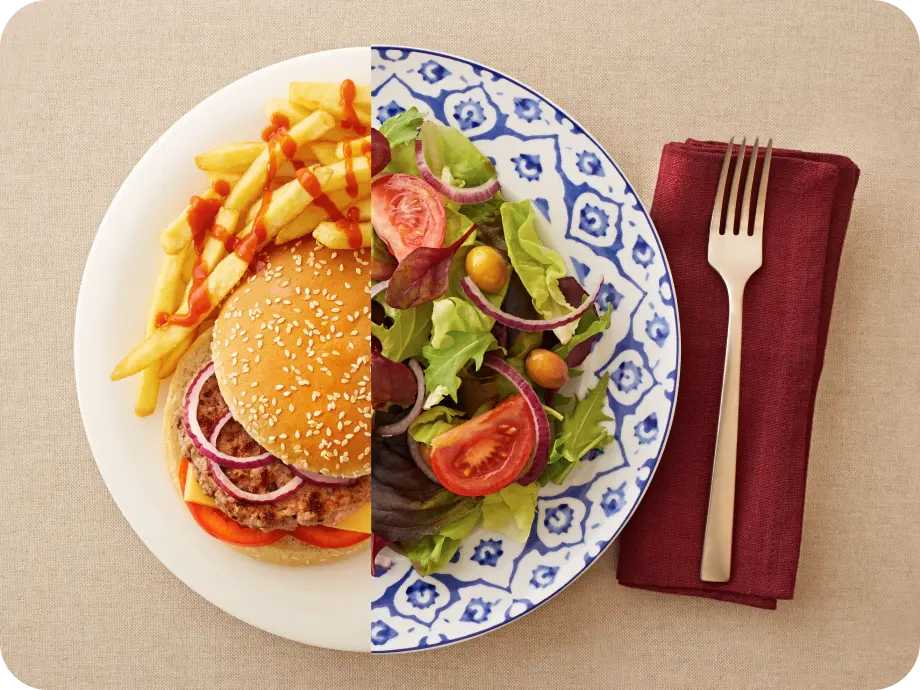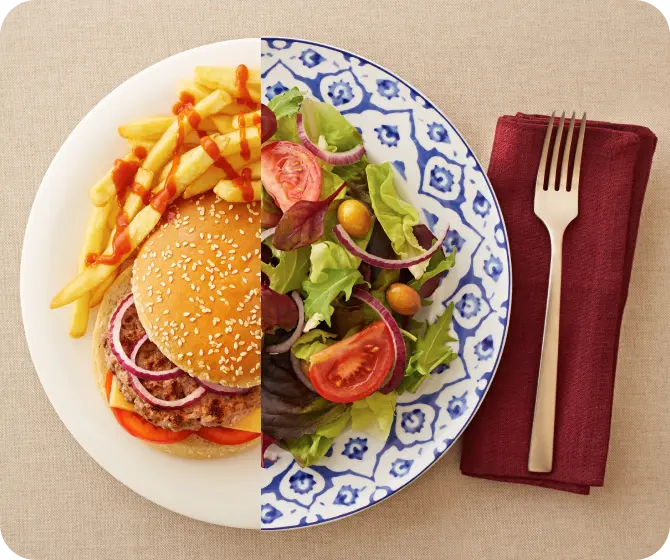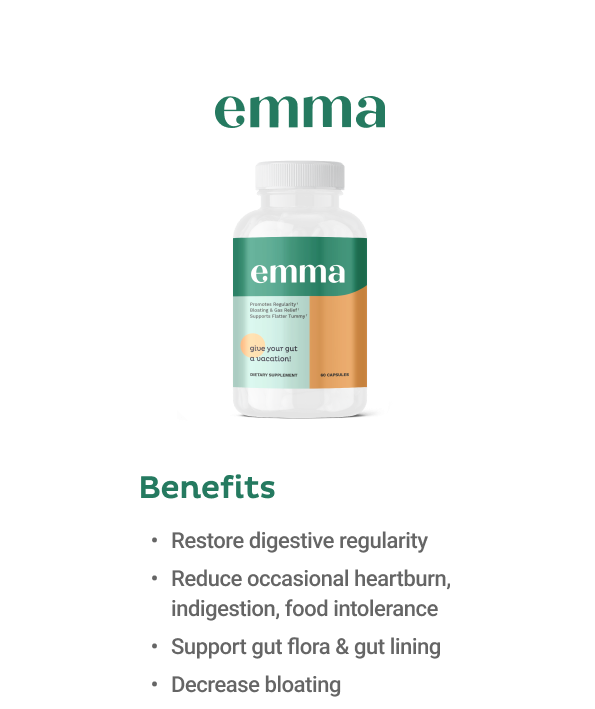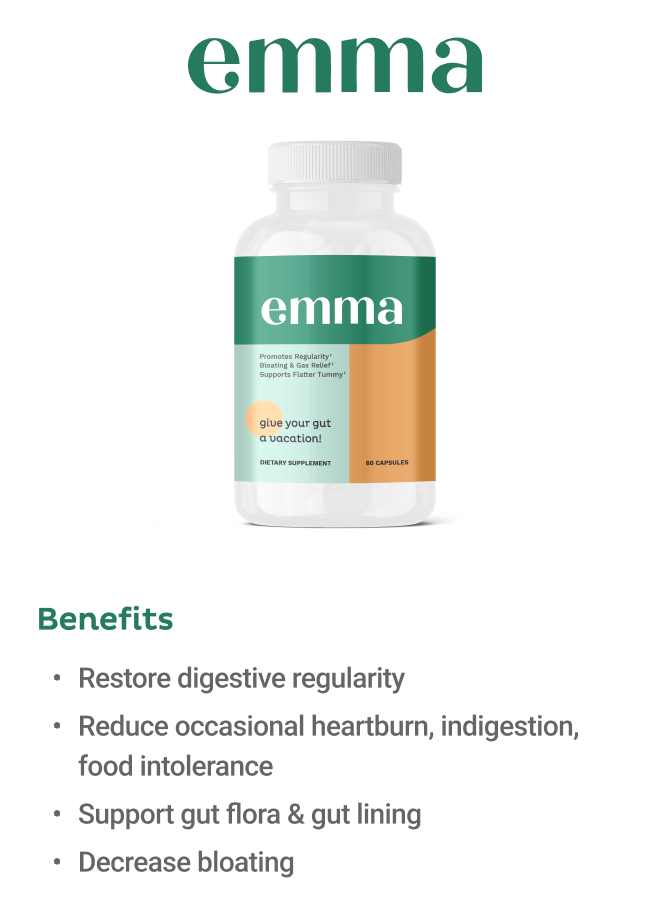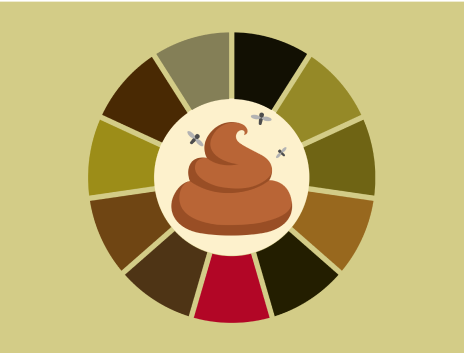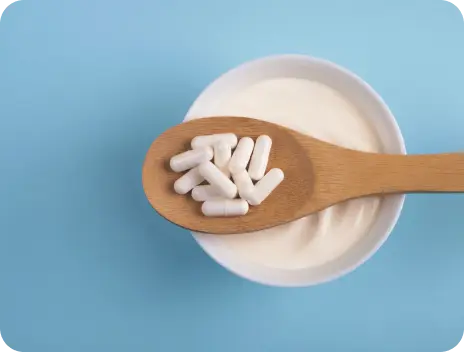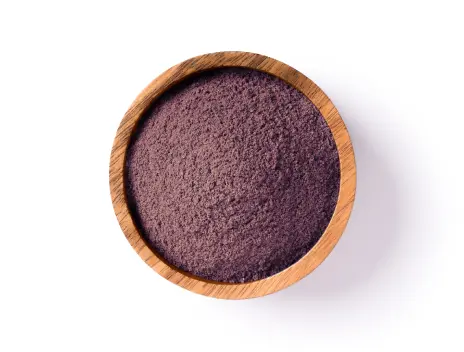Discover effective strategies to manage and reduce bloating after eating, including identifying common culprits, natural remedies, dietary tips, and the best drinks for digestive comfort.
Are you tired of feeling bloated and uncomfortable, even when you think you're making healthy food choices? If you're nodding your head in frustration, you're not alone.
Nearly one in seven Americans experiences bloating weekly, which can cause them to feel sluggish, uncomfortable, and even self-conscious about their appearance.
You might find yourself avoiding social situations, struggling to focus at work, or even skipping out on your favorite activities because of your discomfort.
But what if we told you that the key to reducing bloating could be as simple as avoiding certain foods?
That's right – many everyday foods, even some that are often touted as "healthy," can contribute to that unwanted belly expansion.
We'll explore 11 common foods that can cause bloating, helping you identify potential triggers in your diet and make informed choices.
What Causes Bloating After Eating?

Your digestive system is designed to move food smoothly from your stomach through your intestines—a process known as gut motility. If this movement slows down, food lingers longer than it should, leading to more fermentation and gas.
A common contributor to this slowdown is an imbalance of the gut microbiome, especially due to methane-producing bacteria like Archaea. The methane gas produced by these bacteria impairs gut motility, thus causing bloating.
Let’s explore a few other causes of bloating:
1. Dietary Choices
and FODMAPs


Certain foods are notorious for causing bloating, and it's primarily due to their high FODMAP content. FODMAPs (fermentable oligosaccharides, disaccharides, monosaccharides, and polyols) are carbohydrates that some people find really difficult to digest.
Common culprits include onions, garlic, and dairy products. When these undigested carbohydrates reach the colon, they are fermented by gut bacteria, which produces gas and results in bloating.
2. Eating Habits
How you eat can also lead to bloating. If you often eat quickly, talk while eating, or sip on carbonated drinks, you might be swallowing more air than usual. This air can build up in your gastrointestinal tract and make you feel bloated.
Additionally, overeating is a common cause of bloating. Consuming large portions in one sitting can overwhelm your digestive system, leading to delayed gastric emptying.
The more food that remains in your stomach, the more gas-producing fermentation can occur. This not only slows down digestion but also increases pressure within your stomach, exacerbating feelings of bloating.
3. Small Intestinal
Bacterial Overgrowth
(SIBO)
and Dysbiosis


SIBO happens when there is an abnormal increase in the number of bacteria in your small intestine. These bacteria can ferment food more proximally in your digestive system than usual, leading to bloating soon after you eat. Common symptoms include not only bloating but also pain and changes in bowel habits.
Dysbiosis is an imbalance in the microbial community in your gut. This can happen after taking antibiotics, which might kill good bacteria along with the bad, or due to a diet that doesn't support microbial health. An imbalance can lead to inadequate food digestion and increased fermentation, which produces gas and bloating.
4. Hormonal Fluctuations
According to Healthline, bloating is a common symptom for women during perimenopause and menopause, with hormones being a significant factor. In perimenopause and menopause, lower estrogen levels can result in decreased levels of bile, a substance that keeps the intestines lubricated.
Less lubrication can lead to harder and drier stools, causing constipation and bloating. Additionally, less bile can result in more flatulence.
Pregnancy is also a time when women may experience bloating due to higher levels of progesterone and slower intestinal contractions. This can lead to constipation, gas, and bloat.
5. Excessive Salt Intake
A diet high in sodium can cause water retention, which often manifests as bloating. When you consume too much salt, your body holds onto water to maintain a balanced concentration of salts in your blood.
This can lead to a bloated feeling, which, while not directly linked to gas production, contributes to a general sense of abdominal fullness and discomfort.
Ironically, insufficient water intake can also lead to bloating. When your body doesn't get enough fluid, it begins to conserve water, which can cause bloating.
Dehydration can slow down digestion, leading to constipation and subsequent bloating. Ensuring adequate hydration can help maintain gut motility and reduce the risk of constipation.


11 Common Foods
That Cause
Bloating
And Gas
The key to effectively managing and avoiding that dreaded belly bloat is paying close attention to your diet and the specific foods you consume.
Here's the thing: bloating isn't a one-size-fits-all issue.
What might trigger bloating for you could be completely fine for someone else.
That's why understanding your body's unique reactions to certain foods is absolutely crucial.
By closely monitoring how your body responds to different dietary choices, you can start to identify patterns and pinpoint which foods are likely culprits behind your bloating.
To help you in this journey of discovery, we've shortlisted 11 common foods that cause bloating:
1. Onions and Garlic

-
Rich in fructans, which are poorly
absorbed in the small intestine -
Fructans are rapidly fermented
by gut bacteria in the colon
Onions and garlic are rich in fructans, a type of soluble fiber that can cause digestive issues for some people. Fructans are FODMAPs, which are poorly absorbed in the small intestine and rapidly fermented by gut bacteria in the colon.
This fermentation process produces gas, leading to bloating, cramping, and abdominal discomfort, particularly in those with IBS or sensitive digestive systems.
2. Carbonated Drinks

-
Carbon dioxide can cause excess gas
in stomach and intestines -
Contain artificial sweeteners
like sorbitol or xylitol
When you consume carbonated beverages like Seltzer and club soda, the dissolved carbon dioxide is released into your digestive system. This excess gas can accumulate in your stomach and intestines, causing distension and discomfort.
Additionally, some carbonated drinks contain artificial sweeteners like sorbitol or xylitol, which are also FODMAPs and can contribute to bloating.
3. Broccoli and Cauliflower

-
Contain raffinose that is not easily
digested in the small intestine -
High in fiber, which can
contribute to gas production
Broccoli and cauliflower contain raffinose, a complex sugar that is not easily digested in the small intestine.
When raffinose reaches the colon, it is fermented by gut bacteria, producing gas and causing bloating.
These vegetables are also high in fiber, which can contribute to gas production when consumed in large quantities, especially if eaten raw.
To make broccoli and cauliflower more digestible, try steaming, roasting, or stir-frying them. This helps break down the tough fibers and makes the vegetables easier on your digestive system.
4. Fried Foods

-
High in fat, can slow
the stomach's emptying process -
High-fat diet is likely to damage
the gut microbiome
High in fat, fried foods can slow the stomach's emptying process. The longer food stays in the stomach, the more gas-producing fermentation can occur.
What's more, a high-fat diet is likely to damage the gut microbiome, leading to digestive disorders and other health issues.
5. Chewing Gum

-
Many sugar-free gums
contain sorbitol and xylitol -
When you chew gum,
you tend to swallow more air
When you chew gum, you tend to swallow more air, which can increase the amount of gas in your digestive tract.
Many sugar-free gums contain sugar alcohols like sorbitol and xylitol, which are FODMAPs that are not fully absorbed in the small intestine and can be fermented by gut bacteria, leading to bloating and other digestive symptoms.
If you regularly chew gum and experience bloating, try cutting back or switching to a natural alternative like fresh mint leaves or fennel seeds.
6. Dairy Products

-
Can delay gastric emptying
-
Exacerbate the feeling of fullness
and increase digestive discomfort
Besides lactose intolerance, high-fat dairy products like cream and certain cheeses can delay gastric emptying, which may cause bloating. The fat in these products can exacerbate the feeling of fullness and increase digestive discomfort.
If you're sensitive to dairy or struggle with bloating, opting for lower-fat options or dairy alternatives might help alleviate your symptoms.
7. Alcohol

-
Irritates your gastrointestinal lining
-
Can result in an overgrowth of bacteria
Alcohol isn't just dehydrating; it can also irritate your gastrointestinal lining, leading to water retention and bloating.
Plus, alcohol can result in an overgrowth of bacteria in your small intestine, contributing to bloating and other digestive issues.
If you want to minimize bloating, it's best to limit your alcohol intake or opt for lower-alcohol options like spritzers or light beers.
8. Wheat and Rye

-
Contain fructans and gluten
-
Consumption can lead to an
immune reaction, causing bloating
Both wheat and rye contain fructans and gluten, which can be problematic for some people.
Consuming these grains can lead to an immune reaction that causes inflammation and bloating in the gut for individuals with gluten sensitivity or celiac disease.
Even if you don't have gluten issues, fructans can ferment in the colon, producing gas and leading to bloating.
If you suspect wheat or rye might be causing your digestive discomfort, try experimenting with gluten-free alternatives or reducing your intake to see if it makes a difference.
9. Prunes

-
High fiber content can lead to an
increase in gas production -
Sorbitol in prunes can stimulate
bowel movements
Prunes, also known as dried plums, can cause bloating due to their high fiber and sorbitol content. Sorbitol is a sugar-based alcohol classified under the Polyol group, which is a part of the FODMAP diet.
When prunes are consumed in large quantities, the high fiber content can lead to an increase in gas production.
Additionally, the sorbitol in prunes can stimulate bowel movements due to its laxative properties, which can also contribute to bloating and flatulence.
10. Eggs

-
Can cause bloating due to their high sulfur content
-
Can release hydrogen sulfide gas when digested
For some people, eggs can be a hidden cause of bloating due to their high sulfur content. When eggs are digested, they can release hydrogen sulfide gas, which may lead to bloating, especially in individuals with a sensitive digestive system.
If you find that eggs make you feel bloated, try reducing your intake or experimenting with different preparation methods to see if that helps alleviate your symptoms.
11. Mustard

-
Contains compounds that can lead
to the formation of gas -
Causes bloating due to the
presence of mustard seeds
This tasty condiment can cause bloating due to the presence of mustard seeds. These seeds contain compounds that can lead to the formation of gas as a byproduct of their breakdown.
This is particularly true for people who are not used to eating mustard regularly.
If you love adding mustard to your meals but find that it causes bloating, try using smaller amounts or opting for milder varieties to see if it helps reduce your symptoms.


How To Reduce
Bloating Naturally
To naturally reduce bloating, it's crucial to consume better alternatives of the above listed foods. Additionally, there are other practices you could follow like making diet adjustments, and exercising.
Let’s take a look at these practical ways in more detail:
1. Dietary Adjustments

Replace high-FODMAP foods with alternatives that are easier on the gut. For example, instead of onions and garlic, use herbs like basil or oregano to flavor dishes.
Opt for lactose-free dairy or plant-based alternatives to regular dairy products, which can be easier to digest for those with lactose intolerance or sensitivity to dairy fats.
Increase Intake of
Digestive Aids

Incorporate natural digestive aids into your diet. Foods like ginger, peppermint, and turmeric can help stimulate digestion and reduce inflammation in the gut.
Herbal teas, such as ginger tea or peppermint tea, are also excellent for soothing the digestive system and can help reduce bloating.
3. Physical Activity

Regular physical activity is key to maintaining healthy gut motility.
Exercise helps stimulate the natural contraction of digestive muscles, aiding the movement of food through the digestive system and reducing the likelihood of bloating.
4. Mindful Eating Practices

Eat slowly and chew your food thoroughly. This reduces the amount of air swallowed during eating and allows for better digestion and absorption of nutrients, which can help prevent bloating and gas production.
5. Stress Management

Finally, managing stress is crucial since stress can negatively affect gut motility and overall digestive health.
Techniques such as yoga, meditation, or deep breathing exercises can help reduce stress and its impact on the digestive system.



